What is life?
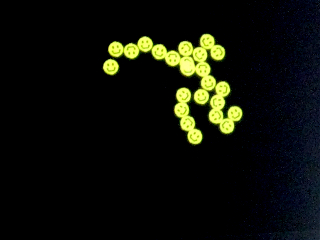
smiley groupings, right?
—-
vivacity,
sprightliness,
vigor,
verve,
activity,
energy.
I go backwards. When I think about life — going back to something that was before, that reaches to the now — and the me that is living now.
Life = Body
LIFE: Origin: before. 900; ME lif(e); OE līf; c. D lijf, G Leib body, ON līf life, body; akin to live]
LIVE: Origin: before. 900; ME liven, OE lifian, libban; c. D leven, G leben, ON lifa, Goth liban]
life. being alive — something with life. some thing : live
body with life.
I’m always going here, trying to figure out what things mean by looking them up, wandering there. The morning was very complicated, very hard to understand. For me, at least. I’d offer, however, it was about what life, what living means. What’s being done, to explore what that meaning might be?
I’d go here:
Old English: life (dat. lif), from P.Gmc. *liba- (cf. O.N. lif “life, body,” Du. lijf “body,” O.H.G. lib “life,” Ger. Leib “body”), properly “continuance, perseverance,” from PIE *lip- “to remain, persevere, continue, live” (see leave). Much of the modern range of meaning was present in O.E. Extended 1703 to “term of duration (of inanimate objects).” Lifestyle is from 1929, originally a specific term used by Austrian psychologist Alfred Adler (1870-1937); broader sense is from 1961. Life-line is from 1700; fig. sense first attested 1860. Life-and-death “vitally important” is from 1822. Lifer “prisoner serving a life sentence” is slang from 1830.
vital
circa.1386, “of or manifesting life,” from L. vitalis “of or belonging to life,” from vita “life,” related to vivere “to live,” from PIE base *gwei- (cf. O.Pers. *jivaka- “alive;” Gk. bios “life,” zoon “animal;” Lith. gyvata “(eternal) life;” O.E. cwic, cwicu “living, alive;” O.Ir. bethu “life;” cf. also bio-). The sense of “necessary or important” is from 1619, via the notion of “essential to life” (1482). Vital statistics is attested from 1837, with ref. to birth, marriage, death, etc.; meaning “a woman’s bust, waist, and hip measurements” is from 1952. Vitality is from 1592; vitals “organs of the body essential to life” first recorded 1610, from the adj., taken as a noun.
bio
from Gk. bio-, comb. form of bios “life, course or way of living” (as opposed to zoe “animal life, organic life”), from PIE base *gweie- “to live” (cf. Skt. jivah “alive, living;” O.E. cwic “alive;” L. vivus “living, alive,” vita “life;” M.Pers. zhiwak “alive;” O.C.S. zivo “to live;” Lith. gyvas “living, alive;” O.Ir. bethu “life,” bith “age;” Welsh byd “world”). The correct usage is that in biography, but in modern science it has been extended to mean “organic life.”
viable
1828, from Fr. viable “capable of life” (1539), from vie “life” (from L. vita “life;” see vital) + -able. Originally of newborn infants; generalized sense is first recorded 1848.
age
1297, “long but indefinite period in human history,” from O.Fr. aage, from V.L. *ætaticum (cf. Sp. edad, It. eta), from L. ætatem (nom. ætas), “period of life,” from ævum “lifetime, eternity, age,” from PIE base *aiw- “vital force, life, long life, eternity” (see eon). Meaning “time something has lived, particular length or stage of life” is from c.1315. Used especially for “old age” since c.1330. Expelled native eld. The verb meaning “to grow old” is from 1398. Ageism “discrimination against people based on age” was coined 1969 by U.S. gerontologist Robert N. Butler, on pattern of racism, sexism.
I suppose that I’m less concerned about the manipulation of life, the genetic pooling, the gatherings and filtration, and more about what it feels like to be alive. I’m sure the other bloggers @ TED will have their point of refraction, here.
What are we worried about? Virus-like contagion of the absence of thought fullness. Go with the crowd. And don’t think about it. Get sucked in. Get sucked down.
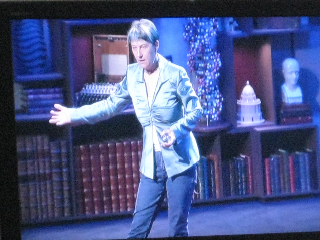
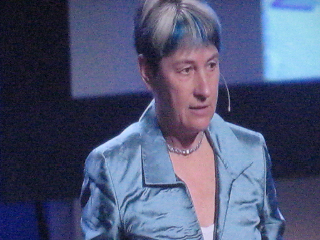
Meme: philosophy
/meem/ [By analogy with “gene”] Richard Dawkins’s term for an idea considered as a replicator, especially with the connotation that memes parasitise people into propagating them much as viruses do.
Memes can be considered the unit of cultural evolution. Ideas can evolve in a way analogous to biological evolution. Some ideas survive better than others; ideas can mutate through, for example, misunderstandings; and two ideas can recombine to produce a new idea involving elements of each parent idea.
The term is used especially in the phrase “meme complex” denoting a group of mutually supporting memes that form an organised belief system, such as a religion. However, “meme” is often misused to mean “meme complex”.
Use of the term connotes acceptance of the idea that in humans (and presumably other tool- and language-using sophonts) cultural evolution by selection of adaptive ideas has become more important than biological evolution by selection of hereditary traits. Hackers find this idea congenial for tolerably obvious reasons.
Teams as spreaders and replicants.
….
Sometimes you can lose everything, everything in your life — by fire. And then what happens?
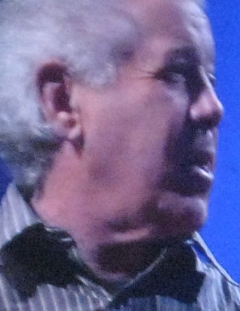
I came to live it and that’s what I’m doing. Fire changes everything. But in fire, there’s change that goes every way. You are burned out, burned in, anew. Fire takes everything and maybe can bring everything back into a new seeing. Lost, but seen anew.
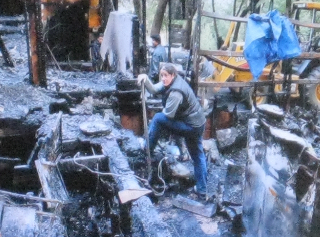
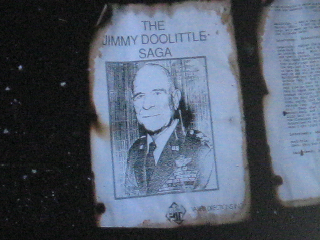
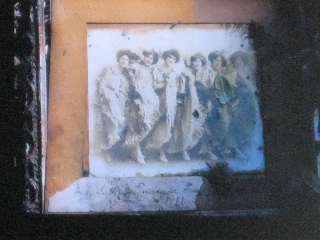
…..
work | love | play.
Pursuing all three, for the richest balance.
There’s a story that’s simply about the integrity of balance. And I wish that I could be there, balanced. But it seems like I’m not — mostly, for me, now — it’s about work. And more work. And finding more work. And there’s less for play. And love.
….
What is beauty and who cares about it?
Beauty, as cultural construction.
We are born to understand the nature of beauty — all of us, worldwide.
Beauty is innate. Everyone knows it — somehow.
Beauty taught? Inculcation | propaganda?
…..
Isaac Mizrahi – design of the story — from the broad, the mass; to the close, the couture.
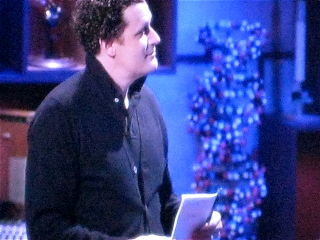
Style is good because it makes you forget that you are going to die. Some thing that is good, is really about not being:
boring.
…..
Roy Gould | Curtis Wong
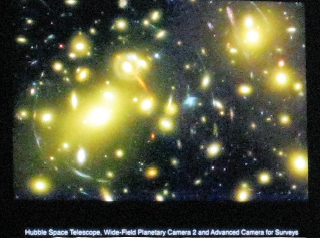
the notations from yesterday didn’t do much — other than the most simplistic presentation: here’s where it really is —
The worldwide telescope | Microsoft’s launch –
now linked up:
http://www.ted.com/index.php/talks/view/id/224
…..
Richard Saul Wurman
What’s it all about — searching?
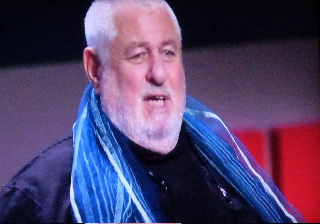
Aren’t most of us really about searching, finding? And importantly, RSW likes to cry. He’s not embarrassed about it. That’s good to know. Tell him what your thinking is, at: rsw@wurman.com.
What about this? Lead by him — and a team.
Explore as you will.
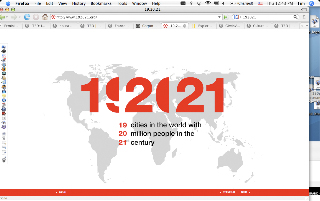
Pay attention to what’s happening.
…..
I’VE | EVIL | LIVE
IT’S PRETTY CLEAR, the magnetic link between the psychic space of listening, living, story, sharing and right fullness — and the contrapuntal trajectory of the other dark stuff: ignorance, closure, dying, silence, abutment, abrasion – wrong fullness, it is a kind of median balancing beam. And that balance swings, one way and another. We keep going. One way and the other. And it’s pretty scary. What’s good – gatherings, bravery, commitment, courage, risking everything to the cause; what’s bad; what’s an opening, what’s not – closure, termination, death. It just goes back and forth. And there are things happening now, to the notions of evil, that are just a patterning that keeps appearing. What, and where, the US is, in terms of our reputation has inflamed our role on the planet, now – less to leadership and more to profound diminishment of the spirit of what we could surely represent.
As a designer, what can you do?
I remember her:

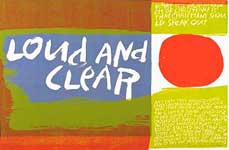

Never again. Can we think about not going back there? What art, what design, collated and offered?
Work hard.
http://eismann-sf.com/news/?p=133
What I’m wondering about is that sense of story in context. What TED seems to be really about is telling stories that embrace power. It’s about finding the heart of the place of meaning, then doing something about it – something that is about imagination.
And, if you want to see change, then it’s about doing change.
What’s learned? Be willing to risk. To cry. To be open. They all go together. Two, gathered.
Wishes, the end:
• Advance the concept of tutoring, each of us committing to doing something in teaching children. It’s in our nature, to share. Mentor. Mind full.
• Build the Einstein of Africa – find them, nourish them, e|involve them. The mathematical legacy, regained in the great continent of Africa.
• Creating a forum that aligns, and supports, emboldens and empowers the spirit of compassion.
Hmmm. Like that:
http://www.seedsofcompassion.net/
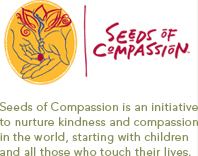
Human Branding: Exploring emotional content in brand storytelling development
Seeds of Compassion | The Kirlin Foundation
http://blog.girvin.com/?p=576
Anyway, that’s what I’ve been thinking about.
What’s your take?
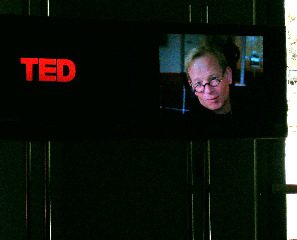
tsg
—-
Tim Girvin
D.logs:
https://www.girvin.com/blog
https://tim.girvin.com/index.php